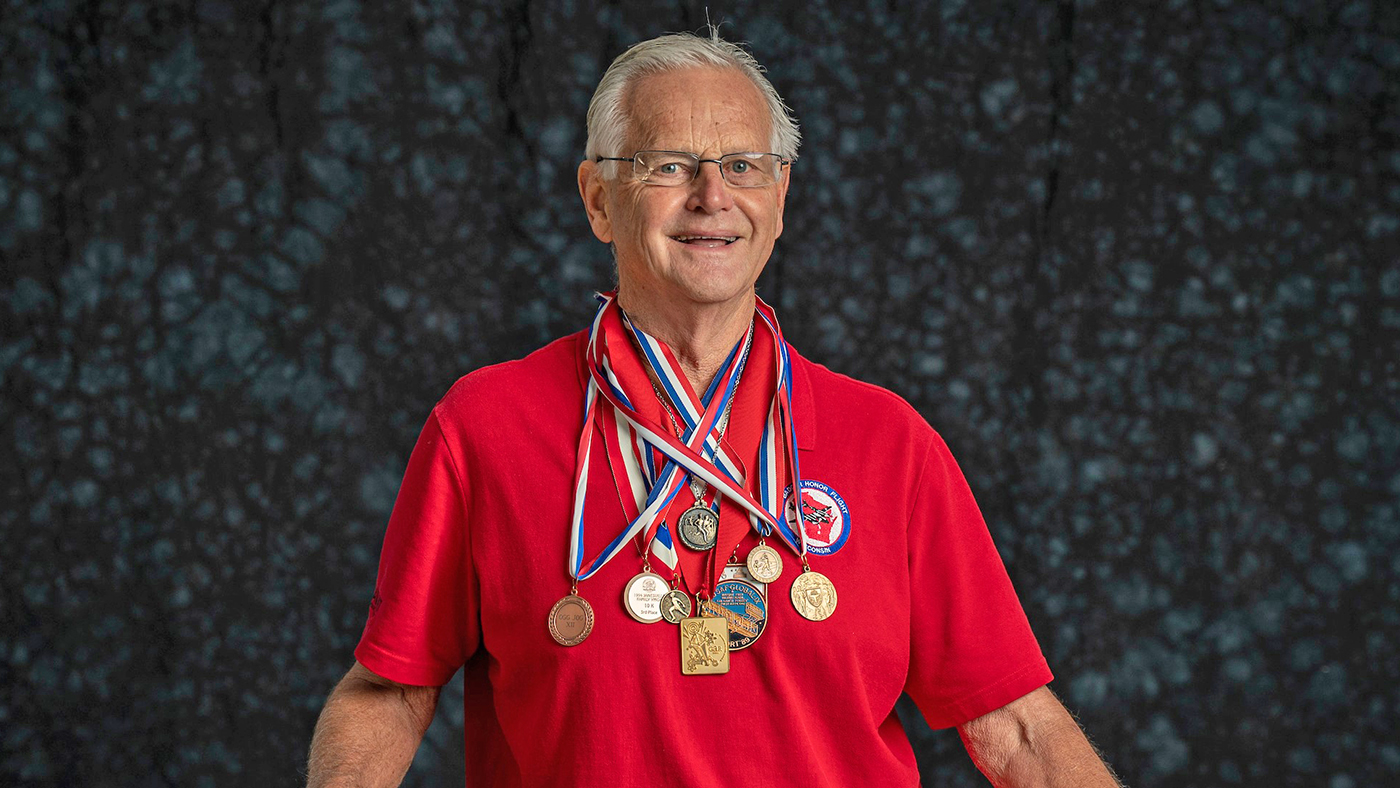Marine Corps Veteran Ken Whitford didn’t know what to expect when he was approached in early 2020 by Seth Jovaag, a writer/editor for VA’s “My Life, My Story” project. He was asked to share his experiences as a Veteran.
“It was a whole new deal to me, but I thought why not give it a whirl. Before you know it, words just started coming out. It was tough but I got through it all,” Whitford said.
Three years later, Whitford (pictured above) believes it was a therapeutic journey, a way to open up and share personal feelings not long after his wife died. “It rekindled a lot of emotions. It was a good thing to do. My kids said, ‘Mom would really be glad you did this,’” he shared.
Through the “My Life, My Story” program, writers interview Veterans for about an hour and write brief stories about their lives. The stories are reviewed by the Veteran and, with their approval, are added to their medical record. Stories are capped at about 1,000 words so busy care providers can read them in a few minutes.
The stories provide a window into patients’ lives, and they gives nurses and doctors a chance to get to know Veterans on a personal level.
Program launched in 2013
This spring, the program turned 10. It launched in 2013 at the William S. Middleton VA in Madison, Wisconsin. Since then, “My Life, My Story” has spread to more than 70 VA hospitals across the U.S. and has gained interest from health care facilities outside of VA.
As of August 2023, more than 8,000 Veteran stories have been captured by VA staff, volunteers and medical students.
Many of the stories are emotionally gripping—and Whitford’s is no exception. The Vietnam War Veteran saw intense combat in the Da Nang region, and said he suffered multiple bullet wounds to one of his legs, and his hearing was damaged.
Despite his injuries, Whitford survived. Many of the buddies he served with did not. “This one guy heard his son being born on a tape from back home. Two weeks later, a sniper popped out of a little rabbit hole and shot him in the back of the head,” he recalled.
Therapy services from VA have helped him overcome survivor’s guilt. Participating in “My Life, My Story” also made him proud to be a Vietnam Veteran, something he didn’t feel when coming home to protests and backlash.
“After the story was placed in the patient record, I got comments from some of the young nurses and doctors. They said, ‘Oh man, we read your story and it was really good.’ And the story helps them get to know me better, whether I’m seeing the eye doctor or my therapist,” he added.
Family: “We’re happy to get to know the whole you.”
After Whitford’s story was completed, he requested 20 copies, which he distributed to friends and family. “They told me, ‘We didn’t know it was like that. But we’re happy to get to know the whole you,’” he shared.
Whitford encourages other Veterans to take part in the program. “The process of sharing experiences—good and bad—could feel like a heavy weight being lifted off the shoulders. It would do good for some Veterans. It’s therapy,” he continued.
Carol Gibson-Gill, chief of the spinal cord injury department at New Jersey VA, connected with Thor Ringler, the program’s national director, in 2017. Soon after, she received training to start the program at her hospital.
Two college students volunteered to conduct interviews and write stories, and the program was off and running. “It’s amazing talking to the Veterans. When you are collecting their story, you learn so much about them,” she said.
Now when Gibson-Gill opens a patient’s electronic medical record, the first thing she does is look to see if a “My Life, My Story” is listed on the cover page. If it is, she will click on the link and read the story before meeting her patient. “It really helps formulate my approach and address what really matters to them. Because you hear the story and you feel like, ‘OK, this person has resilience or this person’s family is really important to them, or this person has some trust issues because of trauma they’ve suffered.’ They’re not just a diabetic or a heart disease patient. They’re a person.”
Topics in this story
More Stories
The Medical Foster Home program offers Veterans an alternative to nursing homes.
Watch the Under Secretary for Health and a panel of experts discuss VA Health Connect tele-emergency care.
The 2024 National Veteran Suicide Prevention Annual Report provides the foundation for VA’s suicide prevention programs and initiatives.








Great help! I’ve shared pieces with my family but never talked what it was about. I appreciate the help.